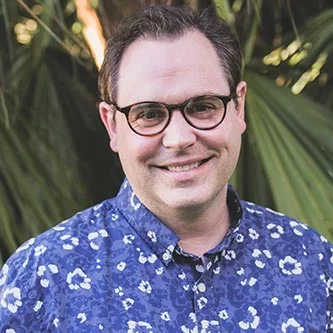Background
I am a political scientist interested in how the institutions of government are built, how they adapt under pressure, and how they operate in places often overlooked in national political discourse. I serve as the Director of the Matsunaga Institute for Peace and Conflict Resolution and as an Associate Professor at the University of Hawai‘i Economic Research Organization (UHERO).
I grew up in the Shasta Cascade region of far Northern California, where pine forests and volcanic peaks give way to the irrigated farmland of the Sacramento Valley. It is a region marked by a deep ambivalence toward government—strong currents of anti-statism exist alongside quiet, structural dependence on public programs and federal authority. That experience shaped my long-standing interest in how institutions are understood, contested, and sustained in communities that lie beyond conventional centers of political power.
I studied political science at Swarthmore College and earned my Ph.D. in Government from Harvard University, where I focused on American Political Development and historical institutionalism. I later held postdoctoral fellowships at Yale University and UC Berkeley. Living and working in Hawai‘i has only sharpened my interest in how public institutions operate across distances—in places where the U.S. government is present but not often trusted, and where the state often feels both too large and too far away. In addition to my academic work, I contribute regularly to public discussions in Hawai‘i as a political analyst and commentator, particularly on elections and state-level public policy.
Education
- PhD, Department of Government, Harvard University, 2009
- MA, Department of Government, Harvard University, 2006
- BA, High Honors in Political Science, Swarthmore College, 2002
Specializations
American political development; bureaucratic politics; American imperialism; Hawaiʻi politics and policy; and veterans health policy.
Research
My research focuses on the development of American political institutions, especially in contexts where state authority is fragmented, improvised, or contested. I study how bureaucracies and welfare systems take shape—not through clear design, but through political struggle, crisis, and adaptation. My past work has appeared in the American Political Science Review, Perspectives on Politics, and Studies in American Political Development, among other venues.
My first book, American Imperialism and the State, 1893–1921 (Cambridge University Press, 2017), explores how the United States governed its overseas territories during the height of its imperial expansion. Rather than relying on centralized authority, imperial administration was characterized by delegation, legal ambiguity, and fragile public-private arrangements. The book reframes empire not as a story of consolidation, but of improvised and contested governance.
My current book project, Service and Scandal: The Political Development of Veterans’ Health Care, traces the history of the Veterans Administration (VA) from the 1920s to the present. It argues that the VA’s most significant reforms and expansions have emerged not from consensus, but from scandal. Moments of crisis have exposed structural weaknesses while also creating openings for investment, professionalization, and institutional growth. The VA’s system of earned eligibility—who is entitled to care, and under what conditions—has made it both politically resilient and deeply contested. Veterans’ health care, in this light, offers a revealing case study of the American welfare state, where public obligation is shaped not by universalism, but by service, sacrifice, and exclusion.
In Hawai‘i, I also conduct applied public policy research on institutional reform, climate adaptation, and civics education. I work in partnership with state agencies, nonprofit organizations, and journalists to help make local public institutions more responsive and effective.
Across all of my work, I try to understand how institutions govern at the margins—how they adapt to pressure, how they operate in contested environments, and how they shape political life in places that are often left out of standard accounts of U.S. political development.
